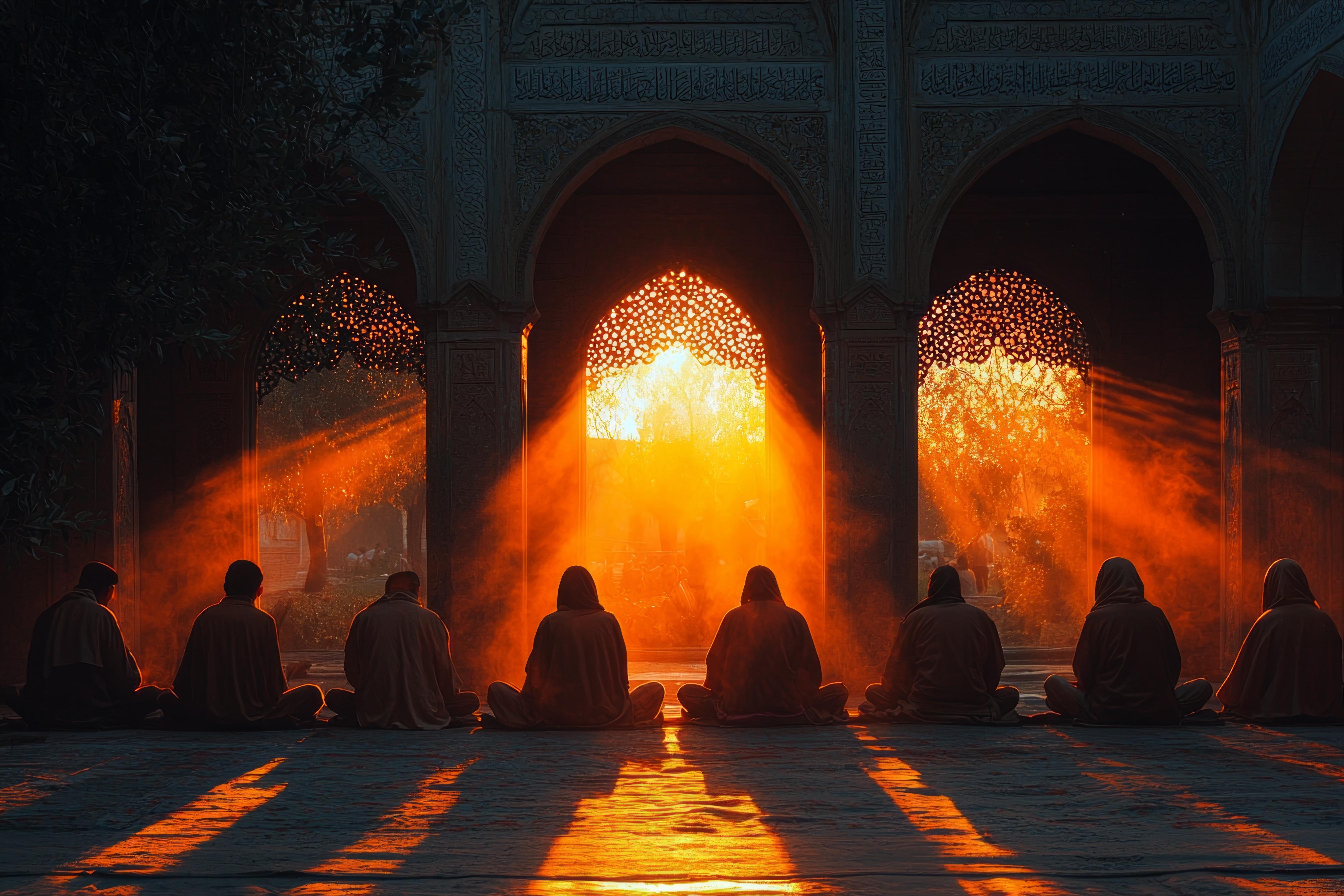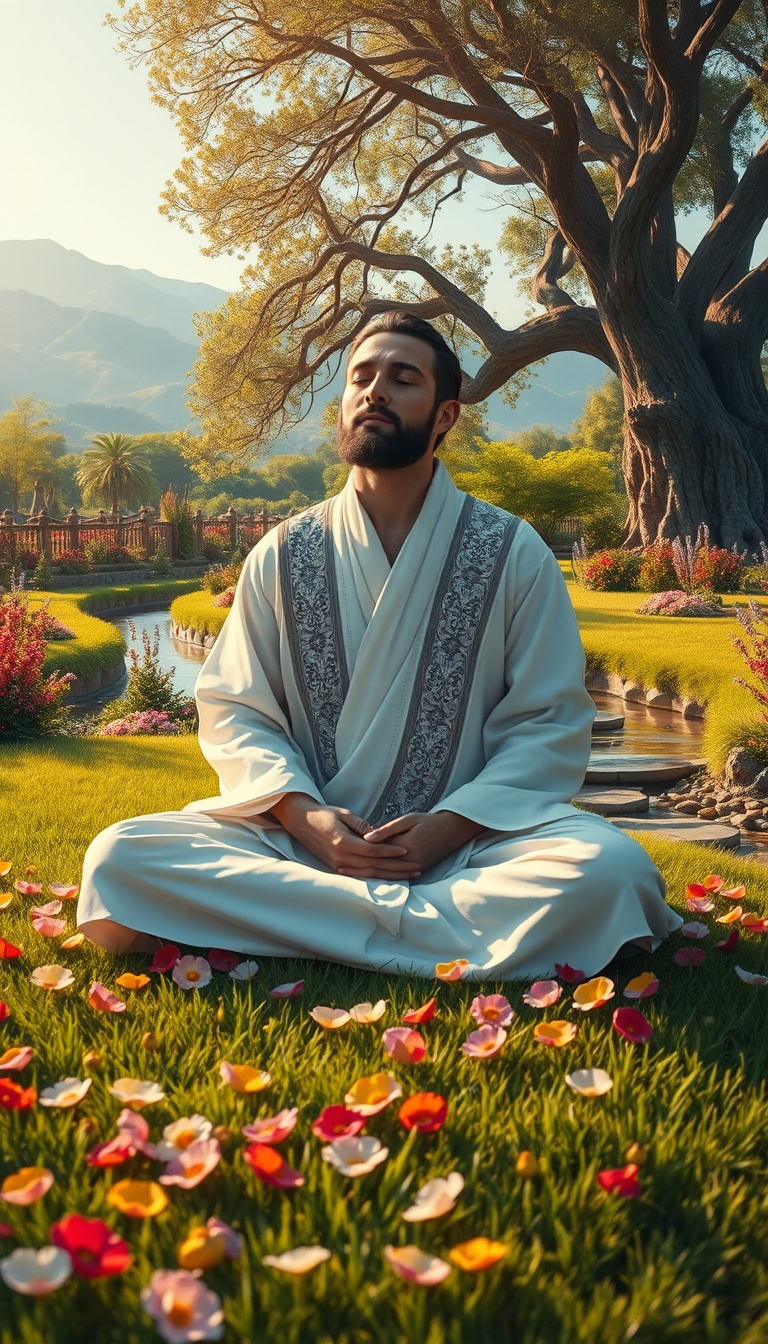The scent of the One

"The Fragrance of One"
In a dusty town on the edge of the desert lived a young man named Idris. He was a potter, a simple craftsman whose days were filled with clay and heat. But something burned within him that no water could quench: an unspeakable longing.
For what, he didn't know.
One day, as Idris was shaping a bowl on the potter's wheel, an old dervish entered the workshop. His robe was simple, but his eyes were like wells without a bottom.
The dervish examined the bowl and said softly:
"You spin clay—but aren't you seeking that which spins you?"
Idris paused.
Something in these words vibrated deep within him. The dervish nodded gently, as if he had struck a hidden chord within Idris, and left the workshop without another word.
That night, Idris couldn't sleep. The words echoed within him like a prayer. And so his journey began—not across seas or mountains, but inward.
He followed in the footsteps of the lovers. The Sufis. The drunkards of God.
He sat with them in silence. He spun in the dance of the dervishes until space and time turned to dust. He spoke verses that were not teachings, but bridges to the heart:
I was dust in your hand for a thousand years,
before I knew your name.
Now I am dust in your breath—
and I dance.
He learned that God was not a distant judge, but a nearness beyond nearness, revealed only when the veil of self falls.
That the heart was not an organ, but a mirror—and that every flaw on it was a shadow between him and the One.
His teacher, a silent Sufi named Rahman, once said:
"God is not hidden. You are."
And one night, when Idris had become completely empty—empty of desire, empty of knowledge, empty of himself—love entered him like a fragrance that didn't come, but was discovered.
No vision. No voice. Only a deep, vibrating knowing:
"I was always with you. You only looked into the mirror—not into the light that touches it."
From then on, Idris didn't speak much. But those who met him felt peace—not out loud, but like a silent song long forgotten.
"What did you find?" a child once asked him.
Idris smiled.
"Me—in nothingness. And in nothingness—Him."
For thus Sufism has whispered for centuries:
Not through knowledge, not through power—but through love, devotion, and the dissolution of self, does man dance back into the arms of the One.


